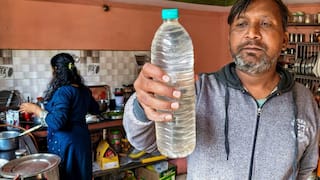Immunodeficiency Awareness Month: How Are These Diseases Cured? Know Medicines And Vaccines Available
Immunodeficiency Awareness Month: The kind of problem and the underlying cause of an immunodeficiency disease determines the therapy for the disorder. Experts tell ABP Live about the therapies.

Immunodeficiency Disease Awareness Month: Welcome to "The Science Of Health", ABP Live's weekly health column. The first article for "The Science Of Health" will discuss immunodeficiency diseases, and what treatments are available for them. The article will also discuss which vaccines and medicines must not be administered to immunodeficient people.
Immunodeficiency diseases occur as a result of a failure or absence of different elements of the immune system, which include lymphocytes; phagocytes, which are types of immune cells that can surround and kill microorganisms, ingest foreign substances, and remove dead cells; and the complement system, which is a part of the immune system that cleans up damaged cells, helps the body heal after an injury or infection, and destroys pathogens.
When the body's immune response is reduced or absent, or when special white blood cells called T or B lymphocytes, or both, do not function normally, or the body does not produce enough antibodies, a person suffers from immunodeficiency disease.
Primary immunodeficiency diseases are rare, genetic disorders that impair and weaken the immune system, and allow infections and other health problems to occur more easily. Experts estimate that more than one million Indians are likely to have primary immunodeficiency diseases.
Immunodeficiency diseases are characterised by a compromised immune system that makes people more vulnerable to infections and other diseases.
Some experts say that one in every 5,000 to 10,000 live births in India has primary immunodeficiency. Selective IgA deficiency, a disease in which one lacks or does not have enough Immunoglobulin A, an antibody body that protects mucosal tissues from microbial invasions, and common variable immunodeficiency are the most frequently primary immunodeficiency diseases seen in India.
ALSO READ | World Immunodeficiency Week: More Than One Million Indians Have Immunodeficiency Diseases, Say Experts
Immunodeficiency Disease Treatments
The kind of problem and the underlying cause of an immunodeficiency disease determines the therapy for the disorder. Treatments for immunodeficiency diseases include bone marrow transplant, immunoglobulin replacement therapy, antibiotic therapy, vaccines and stem cell transplant, experts say.
However, not all immunodeficiency disorders have a cure, and are controlled through symptom management.
“It is essential to note that not all immunodeficiency disorders have a cure, and therapy is often focused on symptom management and infection prevention. Patients suffering from immunodeficiency illnesses should consult with their doctors to establish the appropriate treatment approach for their specific condition,” Varun Seth, Co Founder and CEO of Ketto India, told ABP Live.
Immunoglobulin replacement therapy is a blood-based treatment used in patients with antibody deficiencies, is one of the most important and successful therapies for people with primary immunodeficiencies affecting antibody production, and involves the administration of immunoglobulins prepared from the plasma of thousands of healthy donors, in order to help the affected individuals fight infections.
According to the United States' National Institutes of Health (NIH), immunoglobulin replacement therapy is the only treatment for most patients with primary immunodeficiencies, and involves undergoing a blood-based infusion at regular intervals to increase the levels of antibodies required to fight against infections. The treatment can be administered either intravenously or subcutaneously.
For several primary immunodeficiency diseases, bone marrow transplant is a curative treatment, and the best outcome can be achieved if the transplant is performed before a child acquires an infection.
"Apart from bone marrow transplant, supportive treatments for primary immunodeficiency diseases include prophylactic measures such as isolation, avoiding live vaccines, and using irradiated and leukodepleted blood products, prevention to infections through antibiotic prophylaxis, genetic counselling, and intravenous immunoglobulin (IVIg) replacement,” Dr Sunit Chandra Singhi, Head, Department of Paediatrics, Amrita Hospital, Faridabad, told ABP Live.
Measures designed to prevent the occurrence of an adverse event, a disease, or its dissemination, or to defend the body against a disease, are known as prophylactic measures.
Isolation, avoiding live vaccines, dental cleanings, surgery, and the use of irradiated and leukodepleted blood products are some examples of prophylactic measures. Irradiated blood products are blood products that have been treated with radiation such as X-rays or other forms of radioactivity to stop a patient with primary immunodeficiencies from contracting other diseases.
Leukodepleted blood products are the ones from which leukocytes or red blood cells have been removed.
The administration of antibiotics before contamination by surgical incision has occurred to prevent infections is called antibiotic prophylaxis. This technique helps reduce the risk of postoperative infections, especially at the surgical site.
Genetic counselling gives one information about how genetic conditions might affect one or their family, and is provided by genetic counsellors or other healthcare professionals who will collect one's personal and family health history, according to the Centers for Disease Control and Prevention (CDC).
Intravenous immunoglobulin replacement therapy is given through veins, and replaces the missing antibodies in people with primary immunodeficiencies. In this way, this therapy helps prevent recurrent infections.
Vaccinations that are suitable for people with primary immunodeficiencies, and ones which are not
According to Dr Sanghi, vaccinations are given to patients with primary immunodeficiencies to prevent infections that do not have any treatment. Live vaccines are usually not given to these patients due to the risk of developing serious infections from the vaccine itself.
“In general, inactivated vaccines are used. Live vaccines are avoided because of the risk of developing serious infections caused by the vaccine itself,” Dr Sanghi said.
Patients with severe antibody deficiency or combined immunodeficiency, and those receiving immunosuppressive therapy or immunoglobulin replacement therapy are unlikely to have any benefit even with inactivated vaccines.
Combined immunodeficiencies are the result of defective development or function of T cells, are the most severe form of primary immunodeficiency diseases, and are characterised by increased susceptibility to infection. Since T cells are affected, antibody production decreases. B cells and natural killer cells may also be affected due to combined immunodeficiencies.
Severe combined immunodeficiency, also known as Swiss-type agammaglobulinemia is a group of rare disorders caused by mutations in different genes involved in the development and function of infection-fighting immune cells, and is characterised by the combined absence of T and B lymphocyte function, leading to extreme susceptibility to very serious infections, and symptoms such as pneumonia, blood infection, repeated ear infections, chronic skin infections, diarrhoea, test infections in the mouth, and liver infection.
For patients with combined immunodeficiencies, live vaccines are contraindicated, or are suggested as harmful, Dr Sanghi said.
For patients with severe inherited errors of immunity, inactivated vaccines are unlikely to be effective.
Inherited or inborn errors of immunity are a special group of immune deficiencies caused by somatic mutations, rather than genomic mutations, or are autoantibodies (antibodies made against substances produced by a person's own body, and can be pathogenic) against cytokines (small proteins that control growth, activity and communications of different immune cells), resulting in clinical manifestations similar to other primary immunodeficiency diseases.
Patients with partial combined immunodeficiencies can be given inactivated vaccines.
For patients with antibody deficiencies such as severe inherited errors of immunity affecting the function of B lymphocytes, all live vaccines are contraindicated. Patients with mild inherited errors of immunity can be given all live vaccines other than those against tuberculosis and polio.
Live vaccines are contraindicated for patients with phagocytic defects.
Patients with complement deficiencies can receive all live and inactivated vaccines, and should be immunised against Neisseria meningitidis, which causes infections of the brain and spinal cord; Streptococcus pneumoniae; and Haemophilus influenzae, which causes ear infections or bloodstream infections.
Complement deficiencies are primary immunodeficiencies that result in various clinical scenarios depending on the specific complement protein that is deficient, and can include an increased risk of a wide range of infectious, inflammatory and thrombotic conditions (conditions in which blood clots block veins or arteries). Complement proteins are plasma proteins that interact with one another to opsonize pathogens, or make them susceptible to phagocytosis, and induce a series of inflammatory responses, helping fight infections.
Patients with chronic granulomatous disease, a genetic disorder in which phagocytes are unable to kill certain types of bacteria and fungi, must be given the influenza vaccine, according to Dr Sanghi.
Patients with complement deficiency must be given pneumococcal vaccine, those with complement defects must be given meningococcal vaccines, and those with combined immunodeficiencies must be given Zoster vaccines.
Related Video
Southern Rising Summit 2024: How Important is Self-Awareness? Insights from Anu Aacharya | ABP LIVE
Top Headlines






































